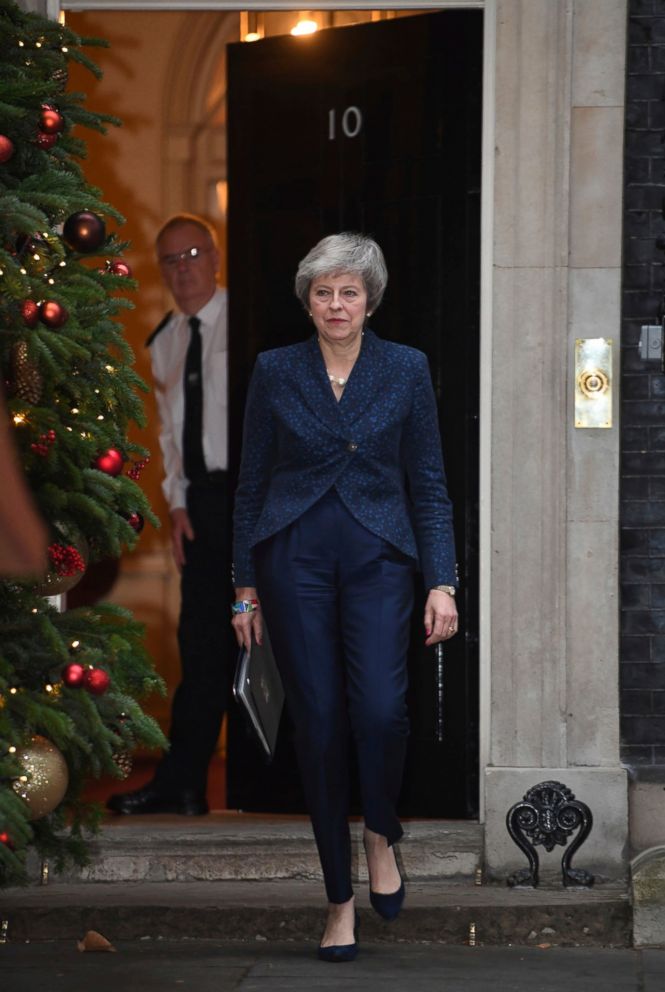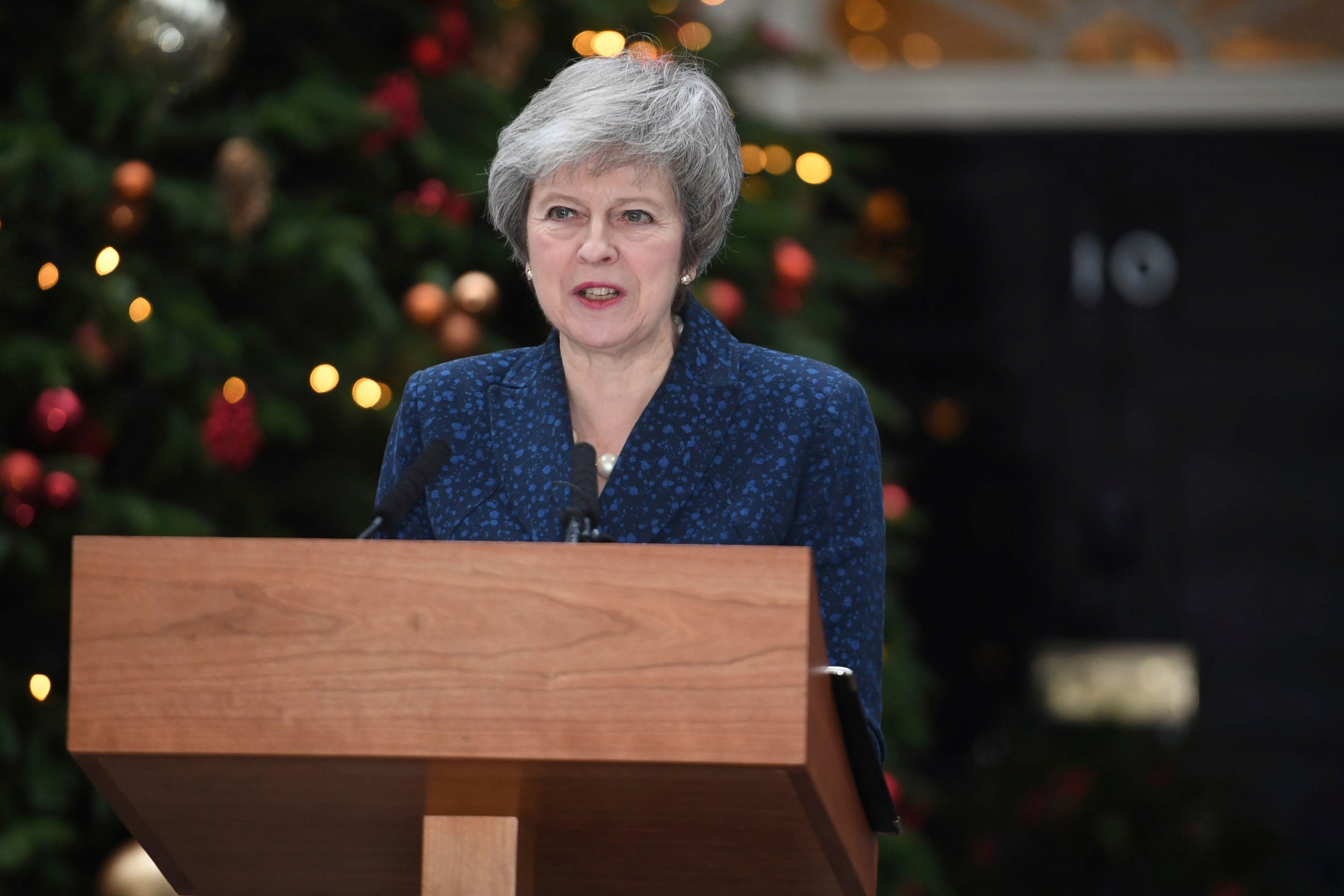Theresa May survives crucial no-confidence vote amid Brexit uncertainty
The prime minister said she will fight on.
LONDON -- U.K. Prime Minister Theresa May survived a crucial no-confidence vote this evening, avoiding the prospect of a bitter leadership contest within her own party.
Early forecasts expected her to survive the motion comfortably, and in the end, her fellow conservative members of Parliament voted in favor of her leadership by a margin of 200-117, with a majority of 83.
May only needed a simple majority, or 159 MPs, to avoid the leadership election. Under Conservative Party rules, she now is immune from another formal leadership challenge for a year.
"This has been a long and challenging day, but at the end of it, I’m pleased to have received the backing of my colleagues in tonight’s ballot,” May told reporters after the victory. “Whilst I’m grateful for that support a significant number of colleagues did cast a vote against me and I have listened to what they say. Following the ballot, we now need to get on with the job of delivering Brexit for the British people."

Jeremy Corbyn, the leader of the Labour Party, meanwhile tweeted that the vote was evidence the prime minister’s government was “in chaos.”
"Tonight's vote changes nothing. Theresa May has lost her majority in Parliament, her Government is in chaos and she's unable to deliver a Brexit deal that works for the country and puts jobs and the economy first. She must now bring her botched deal back to Parliament next week," Corbyn wrote on Twitter.
Events moved at a rapid pace in Westminster on Wednesday, as May was forced to cancel both a trip to Dublin where she was due to discuss the Irish backstop and her own cabinet meeting in order to canvas support from her MPs.
May was able to rally her colleagues and will now stay on as prime minister ahead of a crucial period in British politics.
May staunchly defended her leadership outside 10 Downing Street just before 9 a.m. Wednesday, warning that a leadership contest would damage the country amid tense Brexit negotiations.
"A change of leadership ... will put our country's future at risk and create uncertainty when we can least afford it," she said. "A new leader wouldn't be in place by the 21st January legal deadline, so a leadership election risks handing control of the Brexit negotiations to opposition MPs in parliament ... and a leadership election would not change the fundamentals of the negotiation or the parliamentary arithmetic."
Since the resignation of former Brexit Secretary David Davis this summer, May has come under increasing attack from cabinet colleagues, several of whom resigned in protest over her handling of negotiations with Europe to leave the EU. A growing number of influential Conservative Party members want to sever ties with the EU without remaining in several key EU arrangements.

The Conservatives' mechanism for initiating leadership elections is triggered if 15 percent of MPs write a letter to a group called the 1922 Committee indicating they have no confidence in the leader.
The chair of that committee issued a statement Wednesday morning saying that he had received 48 letters, enough to initiate the process and that a vote would be held between 6 p.m. and 8 p.m., with the results announced at 9 p.m. May addressed the party before the vote took place.
May traveled to three European countries Tuesday for crash talks with leaders, having pulled out of a crucial parliamentary vote the night before.
May announced on Monday that it had become clear her deal covering how the U.K. will leave the EU would not be passed in Parliament, so she returned to Europe to seek further concessions, which many European leaders have warned is not possible.
MPs from all sides of the House of Commons expressed outrage and frustration over May's decision to call off the vote.
May became prime minister in 2016 after former Prime Minister David Cameron resigned after the EU referendum. A leadership election was sparked, but it never went to a vote after the rival candidate pulled out, leaving May as the only choice.




